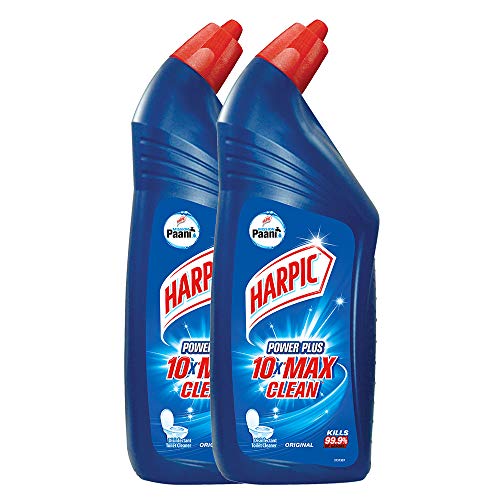Table of Content
If a major storm or earthquake hits, you could find yourself in a messy financial situation if your insurance company won’t cover the damages. For example, standard homeowners insurance will cover basic perils, like fire and theft, while flood insurance will pay specifically for flood losses. In the first case, if you rent out the property frequently and for a short time, it might be considered a business. One way to save on insurance costs would be to take extra precaution when screening tenants. Six property insurance companies in the state have gone bust so far this year.
When you’re buying insurance for a second home you should approach it pretty similar to your main home, with the added thought process of covering your activity in the home such as renting it out. It’s important to make sure you are covered for potential natural disasters, especially since you won’t be around the home as much to maintain it and protect it during an unexpected storm or flood. Buying insurance for a second home isn’t the same as buying insurance for a primary residence. Generally, second homes tend to be seen as riskier properties to insure, especially if they’re going to be vacant most of the time or they’re in areas that are prone to natural disasters. We also offer optional additional limits coverage that pays up to either 125% or 150% of your dwelling coverage limits in the event that you have extra rebuilding costs. A holiday home usually has longer periods when it is unoccupied, which is a higher risk for insurance companies.
Gunzenhausen, Germany property types
However, if you’re only looking to rent the place out once, check your current homeowners insurance policy and contact your insurer. The policy may extend or only require a paid endorsement to cover the short-term, one-time renter. For example, say you’re having a barbeque with friends at your beach house and the grill catches fire.
Along with the building’s condition, you’ll need to bear in mind what type of building it is. Some dependent factors to consider if your second home is a rental property include the rental property’s intended use and your tenant screening process. Second home insurance is coverage for other properties separate from your primary residence. Underinsurance refers to inadequate insurance coverage, which can cause financial hardship for a policyholder.
Can you insure two homes under the same insurance policy?
You could also try asking for a discount if you’re bundling the policy with another kind of insurance coverage. Aside from protecting the structure of your second home, it’s a good idea to ensure that you have enough personal liability coverage. An umbrella insurance policycan give you additional coverage that could come in handy if someone wants to sue you after getting injured on your property. Buying a second home – whether as a vacation getaway or a rental property – is a lot like purchasing a primary residence.

When deciding the finer points of your policy, you’ll want to contemplate the function and location of your second residency to make sure you include all the potential perils. Typically, you can’t insure two homes — such as your primary residence and your second home — under one insurance policy, given they’re prone to different risk factors. To protect the structure of your second home and the valuables inside, you’ll likely need to buy a separate home insurance policy. Property Type—The type of home can also make a difference when getting vacation home insurance. A small mountain cabin, for instance, may cost less to insure than a three-story beachfront property. Having a pool on the property, for instance, can result in paying higher premiums, as pools increase risk for insurers.
What Is Vacation Home Insurance?
Seasonal or vacant home insurance is available if your second home will be unoccupied when you're not there. Otherwise, you may need to buy commercial property insurance or a landlord policy if you will be using your second home for short-term or long-term rentals. The homeowners insurance for your second home also gives you personal liability coverage.

These policies can provide protection for your valuable property, shield you from liability claims, and even provide lost rental income if your property is too damaged to rent due to a covered loss. When shopping around for the best deal, make sure the insurance covers everything you want to cover and has a reasonable coverage limit, premium, and deductible. Many insurers will allow you to bundle policies or save by installing security systems on your home. Amenities like relaxation zones, pools, and hot tubs run additional risks for insurance companies and thus affect the premium as well.
The Home Program is underwritten by Hartford Insurance Company of the Southeast. Discover savings with the AARP Homeowners Insurance Program from The Hartford. The technical storage or access that is used exclusively for anonymous statistical purposes. Hosting guests in your second home may increase the likelihood of liability claims being filed. Leaks, fires, theft and other dangers may go unreported if the house is empty for an extended period.

As you shop around for insurance for your second home, it’s important to pay attention to the cost of insurance premiums. The cost of insuring your second home could be higher than what you’re paying to insure your primary residence. If you’re hoping to keep your premiums as low as possible, installing a security system in the home may shave a few bucks off the cost.
With the additional risk second homes pose, this consideration is even more essential. Picking a residence at a more secure location or finding a home that is a part of an HOA could qualify you for savings and help you remain claimless. For more help in determining what type of second home is right for you, check out our second home flowchart for seniors. While second home insurance policies may be steeper in price, there are some ways to cut down on the final bill. It’s vital to note that you should never mislead your insurer into thinking this policy is for your primary residence. Instead, be upfront about this second property’s specific nature to make sure it’s secured properly.
Insuring your vacation home depends on a few factors—namely, location, the type and state of the property and liable belongings. Depending on where your second home is on the map, you’ll need to take into account the risks of the environment. Depending on your insurer, you may be able to lower your premiums for second home insurance by bundling policies or installing a home security system. Likewise, your insurer may offer discounts for installing smoke detectors or carbon monoxide detectors. Asking about these and other discounts that may be available before you buy can help you find the best deal on vacation home insurance.

























